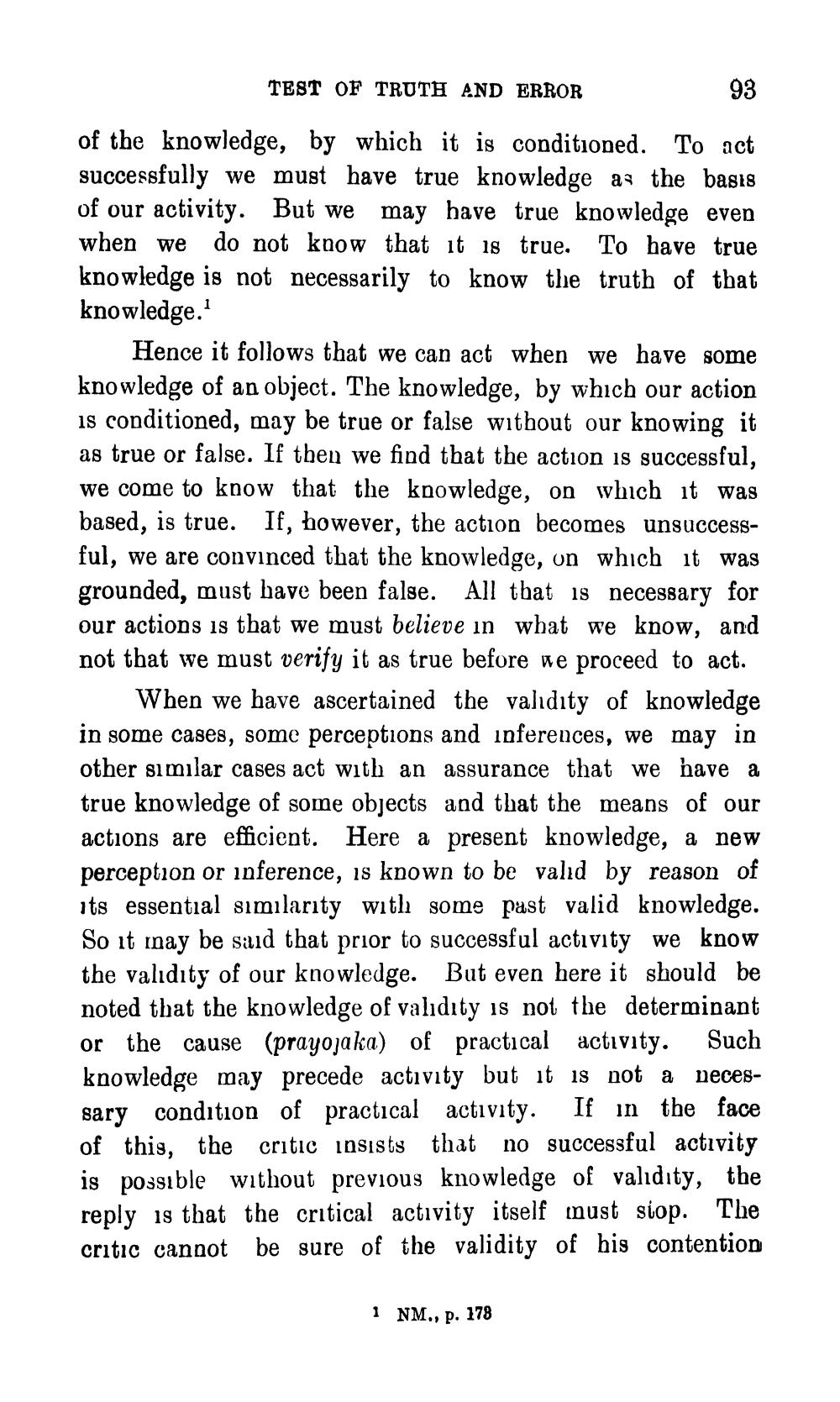________________
TEST OF TRUTH AND ERROR
93 of the knowledge, by which it is conditioned. To act successfully we must have true knowledge as the basis of our activity. But we may have true knowledge even when we do not know that it is true. To have true knowledge is not necessarily to know the truth of that knowledge.'
Hence it follows that we can act when we have some knowledge of an object. The knowledge, by which our action is conditioned, may be true or false without our knowing it as true or false. If then we find that the action is successful, we come to know that the knowledge, on which it was based, is true. If, however, the action becomes unsuccessful, we are convinced that the knowledge, on which it was grounded, must have been false. All that is necessary for our actions is that we must believe in what we know, and not that we must verify it as true before we proceed to act.
When we have ascertained the validity of knowledge in some cases, some perceptions and inferences, we may in other similar cases act with an assurance that we have a true knowledge of some objects and that the means of our actions are efficient. Here a present knowledge, a new perception or inference, is known to be valid by reason of its essential similarity with some past valid knowledge. So it may be said that prior to successful activity we know the valıdıty of our knowledge. But even here it should be noted that the knowledge of validity is not the determinant or the cause (prayojaka) of practical activity. Such knowledge may precede activity but it is not a necessary condition of practical activity. If in the face of this, the critic insists that no successful activity is possible without previous knowledge of validity, the reply is that the critical activity itself must siop. The critic cannot be sure of the validity of his contention
1 NM., p. 178




